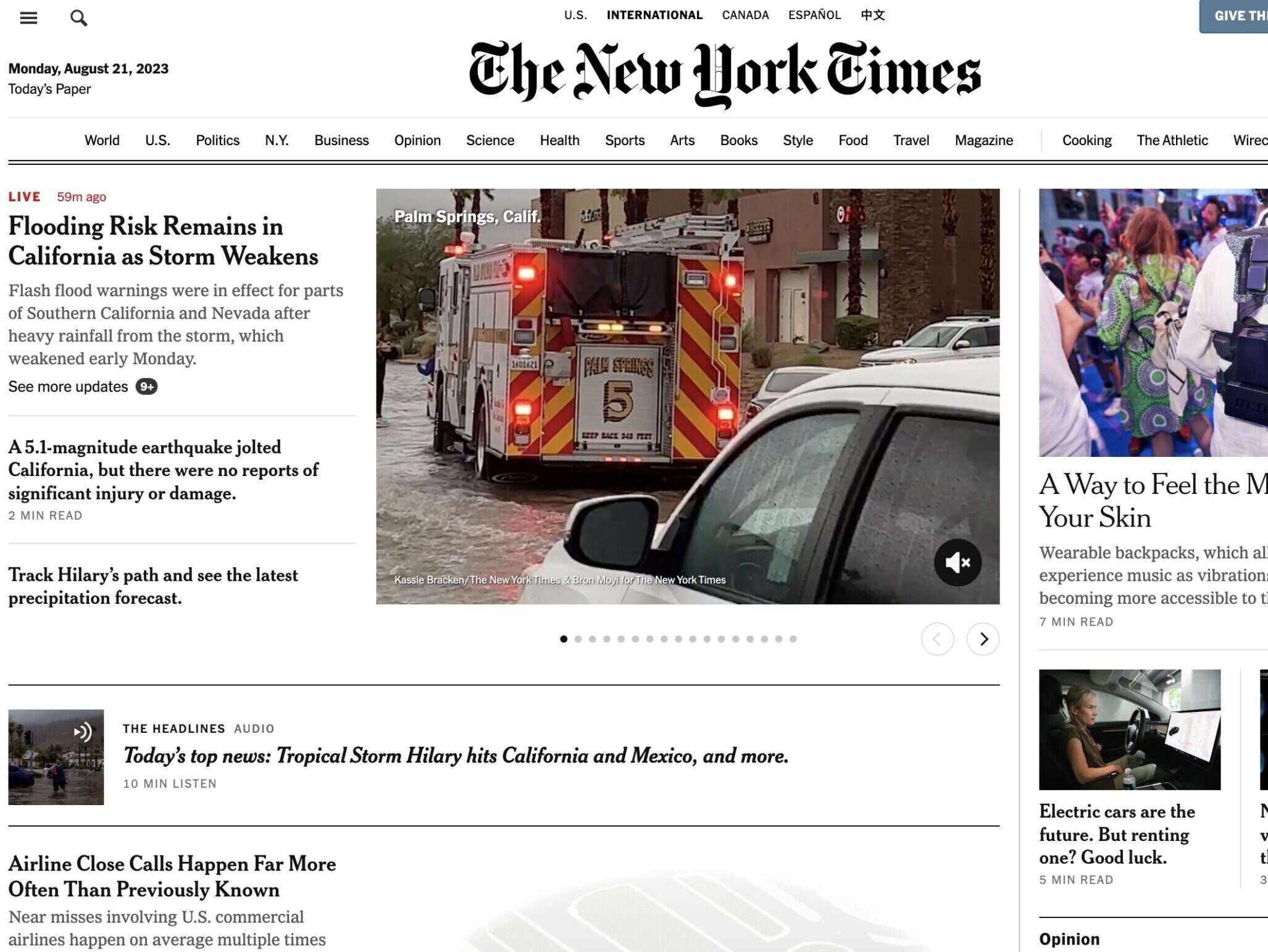A Biased View of News Websites
A Biased View of News Websites
Blog Article
Facts About News Websites Revealed
Table of ContentsTop Guidelines Of News WebsitesNot known Details About News Websites All about News WebsitesThe Greatest Guide To News WebsitesThe 25-Second Trick For News Websites
It was down in the UK and Brazil however up a few other countries, such as Greece, Bulgaria, and Poland (News Websites). This year, for the very first time, we asked about the various manner ins which people prevent the news and found that around half of avoiders (53%) were attempting to do so in a broad-brush or periodic means as an example, by turning off the radio when the information came on, or by scrolling past the information in social networksYou stated that you attempt to proactively avoid information.

I'm probably selecting to read even more light-hearted stories than I utilized to currently. M, 51, UK Turning my back on news is the only way I feel I can cope in some cases. I have to knowingly make the effort to avert for my own mental health.
Unknown Facts About News Websites
Careful avoidance of Ukraine information was highest possible in much of the countries closest to the problem, strengthening findings from our added survey in 2014, right after the war had actually begun. Our information may not recommend a lack of passion in Ukraine from close-by countries however rather a wish to manage time or shield mental wellness from the really genuine scaries of war.
Contrasting Finland with a politically polarised country such as the USA (see next chart) that is much less impacted by the battle, we find an extremely different pattern of topic evasion. In the United States, we discover that consumers are most likely to prevent topics such as national politics and social justice, where discussions over issues such as sex, sexuality, and race have actually ended up being very politicised.
American politics are quite toxic these days. I locate sometimes that I have to separate from stories that just make me mad. F, 61, United States For some people, bitter and disruptive political debates are a reason to transform off information altogether, but also for some political upholders, evasion is frequently regarding shutting out viewpoints you don't want to hear.

Some Known Details About News Websites
Some are wanting to make news extra obtainable for hard-to-reach teams, broadening the information program, appointing more motivating or favorable news, or welcoming useful or services journalism that offer people a sense of hope or individual company. In our study this year, we asked participants regarding their interest in these various methods.
This explains why tales like Ukraine or nationwide politics carry out well with information regulars but can at the very same time turn much less interested users away (News Websites). Careful avoiders are much less thinking about all kinds of news than non-avoiders yet in family member terms they do appear to be more thinking about favorable or solutions-based news

A Biased View of News Websites
2023). This may hold true in the moment, but over time it appears to be leaving lots of people empty and much less pleased, which may be undermining our link with and count on the news. Across markets, general rely on information (40%) and trust fund in the resources individuals utilize themselves (46%) are down by a further 2 percentage factors this year.
Certainly, via the rear-view mirror, the COVID-19 trust fund bump is clearly noticeable in the complying with graph, though the direction of travel after that has actually been blended. In some situations (e.g. Finland), the depend on rise has been maintained, while in others the upturn looks even more like a blip in a tale of continued lasting decrease.
A few of the highest possible reported levels of media criticism are discovered in navigate here countries with highest degree of suspect, such as Greece, the Philippines, the United States, France, and the UK. The cheapest levels of media objection frequent those with higher levels of trust fund, such as Finland, Norway, Denmark, and Japan.
The Only Guide to News Websites
This year we asked participants regarding their choices for message, audio and video when eating information online. Generally, we discover that the bulk still choose to check out the information (57%), rather than watch (30%) or listen to it (13%), but younger people (under-35s) are most likely to listen (17%) than older teams.
Behind the averages we locate substantial and surprising nation differences. In markets with a strong analysis tradition, such as Finland and the UK, around 8 in ten still prefer to check out online news, however in India and Thailand, around four in ten (40%) claim they prefer to enjoy information online, and in the Philippines that proportion is over fifty percent (52%).
Report this page